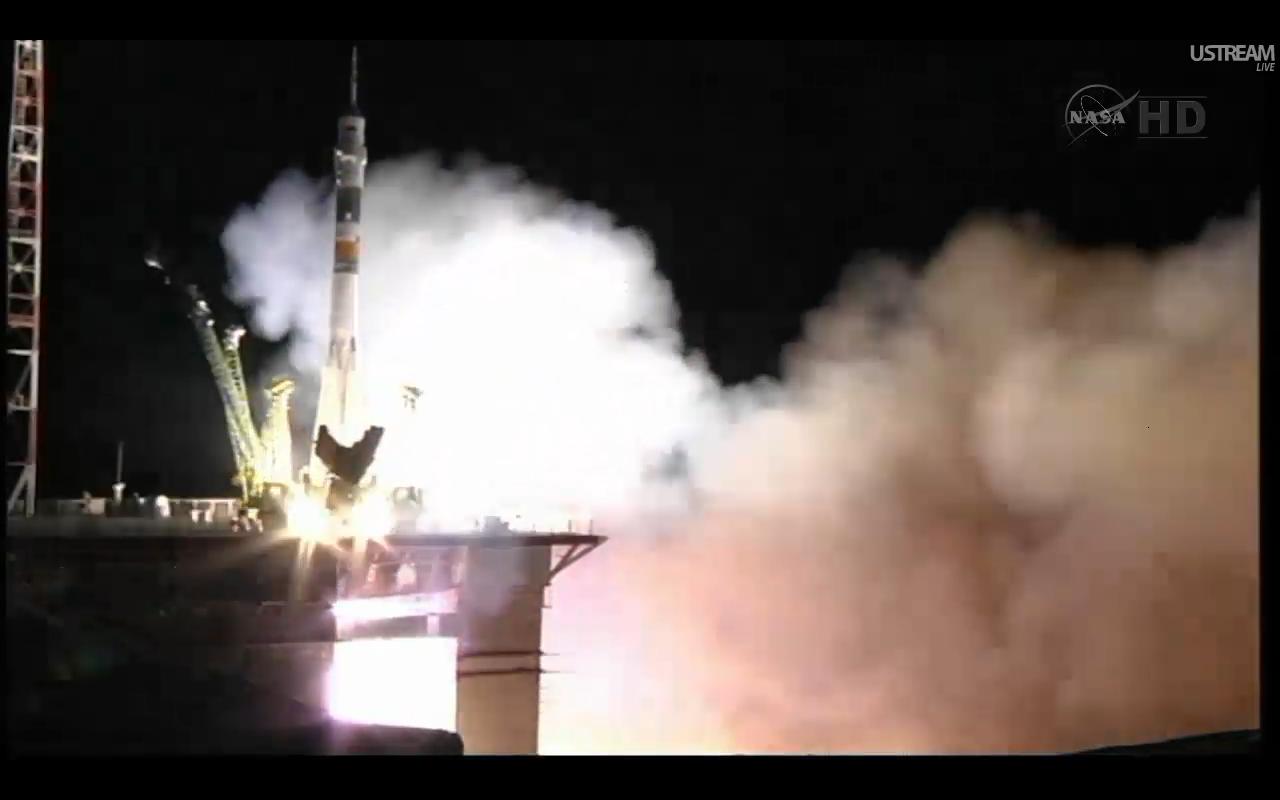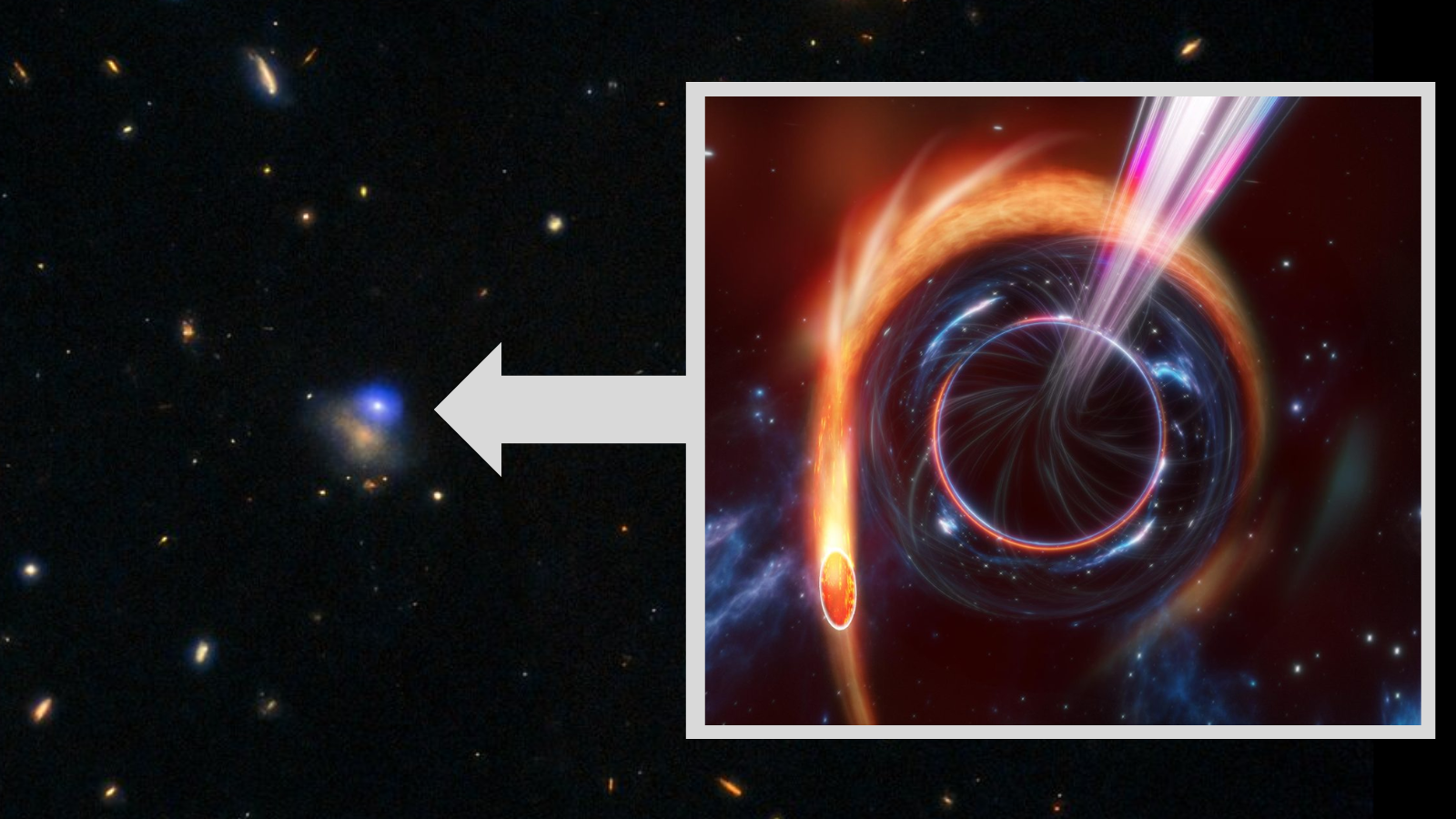Russian Soyuz Launches New Space Station Crew Into Orbit

This story was updated at 4:38 p.m. EDT.
Three spaceflyers are on their way to the International Space Station, after launching toward the orbiting complex today (June 7) in a Russian-made Soyuz capsule.
NASA astronaut Mike Fossum, Russian cosmonaut Sergei Volkov and Satoshi Furukawa of the Japan Aerospace Exploration Agency (JAXA), are set to become the newest space station residents, and will live and work at the orbiting outpost for roughly five-and-a-half months.
Fossum, Volkov and Furukawa blasted off at 4:12 p.m. EDT (2012 GMT) from the Baikonour Cosmodrome in Kazakhstan. The trio is riding in a Russian-built Soyuz TMA-02M spacecraft, which is the second generation of the upgraded digital Soyuz capsule that was modified to fix computer console display glitches that popped up during the design's first flight. [Video: Soyuz Blasts Off to Space Station]
"We feel great, and everything is nominal onboard," Volkov reported shortly after liftoff.
The international crew is scheduled to arrive at the space station on Thursday (June 9) at 5:22 p.m. EDT (2122 GMT) after a two-day orbital journey. The spacecraft will dock at the Russian Rassvet mini research module.
"Congratulations on a successful launch. Congratulations from the bottom of my heart," a Russian flight controller radioed to Volkov, the Soyuz commander.
Breaking space news, the latest updates on rocket launches, skywatching events and more!
Rounding out the station crew
Fossum, Volkov and Furukasa will join three others who have been living at the space station since April – NASA astronaut Ron Garan and Russian cosmonauts Alexander Samokutyaev and Andrey Borisenko – to round out the station's Expedition 28 mission. [Amazing Photos by Astronaut Ron Garan]
Garan, Samokutyaev and Borisenko are scheduled to return to Earth in September. At that time, Fossum will assume command of the station from Borisenko to begin the Expedition 29 mission.
During their time at the space station, the new crewmembers will perform a wide variety of research and experiments. For example, Furukawa plans to grow cucumbers in microgravity to study how future space explorers can harvest their own food on longer missions that push further out into the solar system.
The astronauts will also be the subject of medical and life sciences experiments that examine how the human body adapts and changes over the course of long-duration missions in space. The crewmembers will be monitored for bone loss, muscle health, and their aerobic and cardiovascular health will be measured over time.
"Just being there we are an experiment," Fossum said in a preflight interview. "All of those three things, the bone health, muscle health and cardiovascular health, are really important just for long-term health of astronauts and very important to maintain that health as some day we venture beyond low Earth orbit and go to Mars.
Busy time in space
Fossum is making his third spaceflight. A veteran of two previous space shuttle missions, he has already logged more than 26 days in space. Volkov, a second-generation cosmonaut, completed his first stint at the space station in 2008. During that time, he spent 199 days in space and performed two spacewalks. Furukawa, a surgeon, is making his first spaceflight.
Today's Soyuz launch came less than a week after NASA's space shuttle Endeavour landed to end the agency's second-to-last shuttle mission. Endeavour touched down at Kennedy Space Center in Florida on June 1 at the conclusion of its 16-day visit to the International Space Station. [Photos of Space Shuttle Endeavour's Last Landing]
The Expedition 28 crew will host the final mission of NASA's space shuttle program, the STS-135 flight of Atlantis, which is scheduled to launch July 8. Atlantis' flight will wrap up the agency's 30-year shuttle program, making way for NASA to focus on developing spacecraft to explore beyond low-Earth orbit.
You can follow SPACE.com Staff Writer Denise Chow on Twitter @denisechow. Follow SPACE.com for the latest in space science and exploration news on Twitter @Spacedotcom and on Facebook.

Denise Chow is a former Space.com staff writer who then worked as assistant managing editor at Live Science before moving to NBC News as a science reporter, where she focuses on general science and climate change. She spent two years with Space.com, writing about rocket launches and covering NASA's final three space shuttle missions, before joining the Live Science team in 2013. A Canadian transplant, Denise has a bachelor's degree from the University of Toronto, and a master's degree in journalism from New York University. At NBC News, Denise covers general science and climate change.
